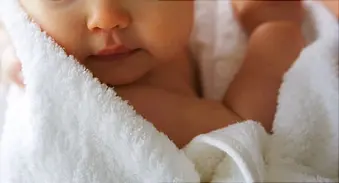Myths and Facts About Your Baby's Eczema


Question 1/8
Your baby can get eczema at day care.
- Myth
- Fact
Question 2/8
Babies who have eczema have it for life.
- Myth
- Fact
Question 3/8
What you eat while breastfeeding can affect eczema.
- Myth
- Fact
Question 4/8
Not bathing your baby as much will help their skin.
- Myth
- Fact
Question 5/8
Drooling can make your baby's eczema worse.
- Myth
- Fact
Question 6/8
Cotton clothing is best for babies with eczema.
- Myth
- Fact
Question 7/8
Your baby's eczema is likely to be worse in the winter.
- Myth
- Fact
Question 8/8
Babies with eczema are likely to have other allergies.
- Myth
- Fact
